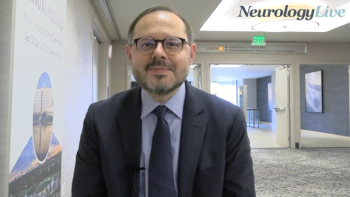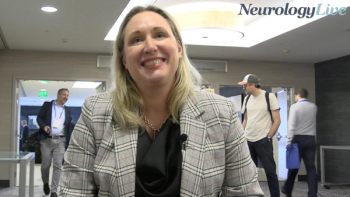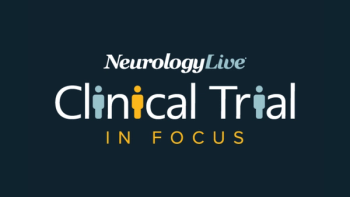
A phase 1/2 trial explores YTB323, a CAR T cell therapy, for treating generalized myasthenia gravis, aiming to enhance patient outcomes and safety.

A phase 1/2 trial explores YTB323, a CAR T cell therapy, for treating generalized myasthenia gravis, aiming to enhance patient outcomes and safety.

A phase 3 study will evaluate iptacopan's efficacy in treating generalized myasthenia gravis, focusing on daily living activities and safety outcomes.

UCB's Kygevvi becomes the first FDA-approved treatment for thymidine kinase 2 deficiency, offering hope to patients with this rare neuromuscular disorder.

The associate professor of clinical neurology at Keck Medicine of USC discussed advancements in therapeutics, the growing focus on biomarkers, and ongoing challenges in myasthenia gravis. [WATCH TIME: 4 minutes]

Gregory Hawryluk, MD, PhD, a neurosurgeon at Cleveland Clinic, spoke on the development and clinical impact of new global guidelines for penetrating traumatic brain injury.

The associate professor of neurology at Yale School of Medicine discussed 52-week data from the phase 3 MINT trial of inebilizumab in patients with generalized myasthenia gravis. [WATCH TIME: 5 minutes]

Here's some of what is coming soon to NeurologyLive® this week.

The head of Rare Diseases US at UCB talked about the company’s latest data on rozanolixizumab and zilucoplan in patients living with generalized myasthenia gravis. [WATCH TIME: 3 minutes]

The chief medical officer at Mandos Health discussed new CNS 2025 data on adrabetadex in infantile-onset Niemann-Pick type C and the growing evidence of its potential disease-modifying impact.

Test your neurology knowledge with NeurologyLive®'s weekly quiz series, featuring questions on a variety of clinical and historical neurology topics. This week's topic is on the 2025 AANEM Annual Meeting!

In this final segment, Joseph Sullivan, MD, outlines the rationale, design, and key considerations behind the phase 3 EMPEROR trial, which aims to confirm zorevunersen’s efficacy and potential disease-modifying effects in Dravet syndrome. [WATCH TIME: 3 minutes]

Take 5 minutes to catch up on NeurologyLive®'s highlights from the week ending October 31, 2025.

In this episode, epilepsy expert Joseph Sullivan, MD, explains how zorevunersen achieved meaningful seizure and developmental improvements even in patients already receiving highly effective antiseizure medications. [WATCH TIME: 3 minutes]

Salvia BioElectronics’ PRIMUS system, currently being assessed in a clinical trial, delivers subcutaneous occipital and supraorbital nerve stimulation for patients with resistant migraine.

Avi Singh Gandh, MD, neurology resident at Emory University School of Medicine, reflected on how modern neurology can help interpret the Salem witch trials.

Mind Moments®, a podcast from NeurologyLive®, brings you an exclusive interview with Rebecca Edelmayer, PhD. [LISTEN TIME: 14 minutes]

A groundbreaking trial compares nipocalimab and efgartigimod for treating generalized myasthenia gravis, promising new insights for patient care.

A perspective model aimed noted that introducing efgartigimod alfa for patients with chronic inflammatory demyelinating polyneuropathy incurs more expected costs.

Epilepsy expert Joseph Sullivan, MD, detailed zorevunersen’s effects on adaptive behavior and communication skills, emphasizing improvements on the Vineland-3 scale that extend beyond seizure control. [WATCH TIME: 5 minutes]

Patients with generalized myasthenia gravis reported a positive experience with rozanolixizumab self-administration, with a preference for the manual push method.

An open-label extension trial testing the efficacy of nipocalimab in patients transitioning from placebo revealed continued improvement in MG-Activities of Daily Living scores over a long-term period.

Andrew Russman, DO, medical director of Cleveland Clinic’s Comprehensive Stroke Center, shared insights on stroke awareness, prevention, and the growing importance of heart-brain collaboration in care.

Data showed that efgartigimod led to greater improvements in disease activity compared with placebo in idiopathic inflammatory myopathy, and improvements in seronegative myasthenia gravis.

In this episode, Joseph Sullivan, MD, reviews zorevunersen’s long-term safety profile, including cerebrospinal fluid protein changes, procedural effects, and the absence of clinically significant adverse events. [WATCH TIME: 3 minutes]

Obexelimab shows promising results in reducing lesions in relapsing multiple sclerosis, highlighting its potential as a new treatment for autoimmune diseases.

Amid World Stroke Day, neurosurgeon Evan Luther, MD, discussed the PICASSO trial’s effort to clarify the role of acute carotid stenting during mechanical thrombectomy for tandem occlusions in ischemic stroke.

An analysis of the first 110 patients screened for the ARISE study showed that an independent adjudication committee confirmed the diagnosis of CIDP in nearly 3-quarters of cases.

The chief science officer at the American Heart Association discusses its priorities for stroke prevention, cross-specialty collaboration, and equitable care as clinicians mark World Stroke Day 2025.

A post-hoc analysis study revealed apomorphine sublingual film was efficacious over a long term period across various age ranges, including elders, with Parkinson disease.

Epilepsy expert Joseph Sullivan, MD, reviews 36-month results from the zorevunersen program, highlighting durable seizure reduction and sustained efficacy following dose optimization. [WATCH TIME: 4 minutes]